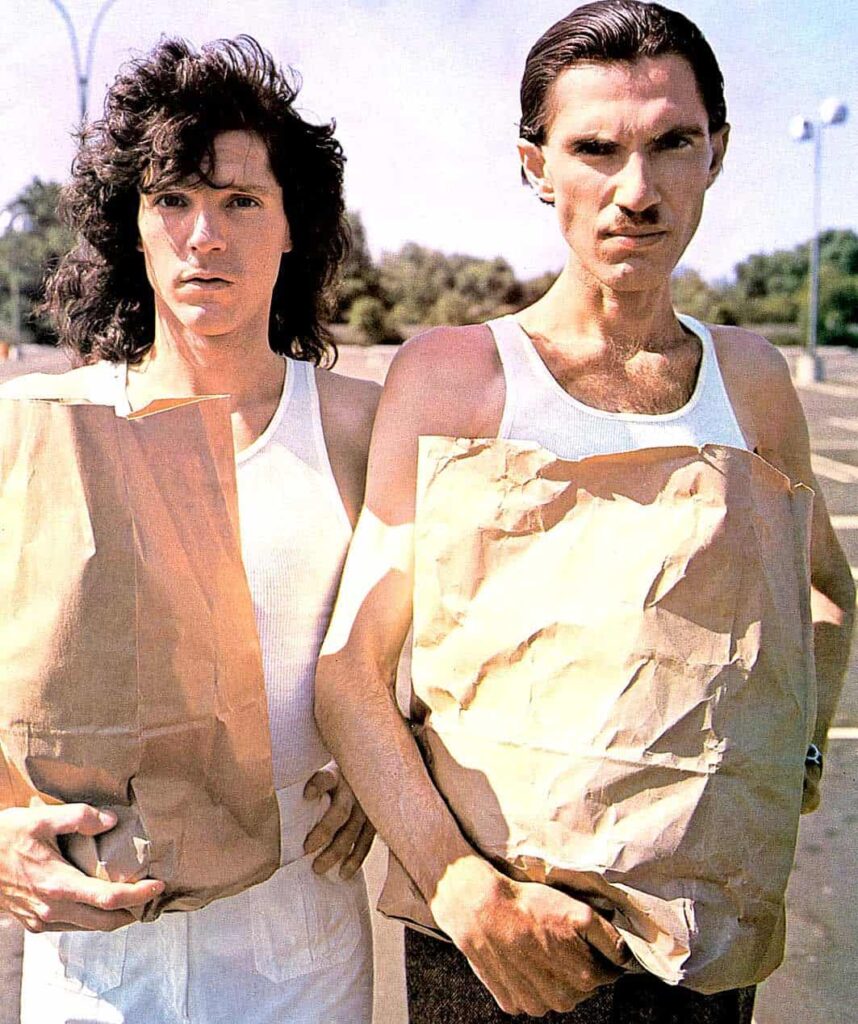
Amateurs No More: A Glam Rock Anthem for the Age of Inexperience
The year was 1974. A cultural shift was underway, and in the midst of it, two American brothers, Russell and Ron Mael, collectively known as Sparks, were solidifying their place as the arbiters of eccentric, intellectual pop. Following the unexpected, chart-blazing success of “This Town Ain’t Big Enough for Both of Us,” the pressure was on. The second single from their pivotal third album, Kimono My House, emerged that summer, carrying with it a distinct, almost menacingly giddy energy. That song was “Amateur Hour,” a track that perfectly encapsulated the Sparks blend of glam-rock theatrics, baroque pop intricacy, and Ron Mael’s uniquely sardonic wit. Released on Island Records, “Amateur Hour” confirmed the band’s commercial footing in the UK, peaking at a respectable No. 7 on the Official Singles Chart. It remained a Top 10 hit, a follow-up that proved their breakthrough was no fluke, setting the stage for one of the most unpredictable and enduring careers in rock history.
A Sarcastic Celebration of Clumsy First Times
The song’s core meaning is a darkly humorous, yet surprisingly empathetic, commentary on the perilous, clumsy, and often comical rites of passage for adolescents, specifically the loss of innocence through sexual inexperience—the ‘amateur hour’ of its title. Ron Mael’s brilliant, almost poetic lyrics set a scene rife with suburban tension: “The lawns grow plush in the hinterlands / The perfect little setting for the one night stands.” It paints a picture of clandestine encounters, where “The drapes are drawn and the lights are out,” giving cover to the awkward, fumbling efforts of the young and uninitiated. The narrator, sung with Russell Mael’s characteristic, soaring falsetto, offers a kind of twisted, almost condescending encouragement: “Well she can show you what you must do / To be more like people better than you / And amateur hour goes on.”
For those of us who came of age in that era, or perhaps looked back on our youth with a mixture of fondness and wincing recollection, the song strikes a very deep, resonant chord. It’s an astute observation of that universal teenage struggle: the desire to be worldly and experienced, clashing head-on with the sheer, unavoidable fact of not knowing what you’re doing. The genius of Sparks lies in treating this vulnerable subject with an ironic flourish and a musical backdrop that is anything but amateur. The galloping piano, the jarring, staccato chords, and Russell’s dramatic, high-wire vocals transform a moment of personal awkwardness into an urgent, anthemic rock opera in miniature.
The track’s composition, produced by the masterful Muff Winwood, is a whirlwind of Glam Rock energy. The driving, almost mechanical rhythm section—featuring drummer Dinky Diamond and original bassist Martin Gordon (though an anecdote from the time recalls Gordon being asked to re-record his Rickenbacker bass part on a different Fender Precision for a heavier sound, showcasing the attention to detail)—propels Russell’s manic delivery. It’s a sound that’s simultaneously sophisticated and completely over the top, embodying the spirit of the early 70s art-rock movement that Sparks championed. They took the trappings of commercial pop and injected it with Dadaist absurdity and intellectual depth, a challenging combination that somehow translated into pure, irresistible catchiness.
If you cast your mind back to the middle of the 1970s, it wasn’t just the music of “Amateur Hour” that caught the eye, but the visual spectacle of the Mael brothers. Their appearance on shows like Top of the Pops was a performance art piece in itself—Russell, the flamboyant, curly-haired, energetic frontman, prancing and gyrating, juxtaposed with the stark, motionless, often scowling figure of Ron behind his keyboard, complete with his Chaplin-esque mustache. It was this magnetic, theatrical dichotomy that made Sparks unforgettable and turned their songs, like this one, into cultural talking points. The song’s longevity—re-recorded in 1997 with Erasure for their Plagiarism album—only confirms its timeless analysis of the human condition, proving that we never quite escape that initial, beautifully embarrassing “Amateur Hour.”